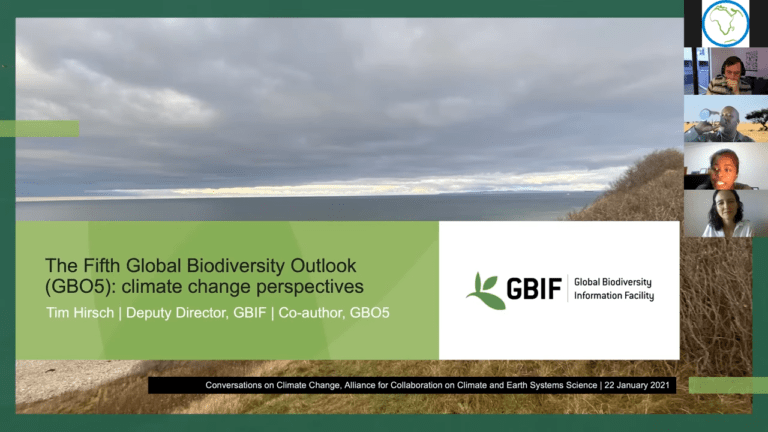Videos
Newsclips and videos relevant to our advocacy work
With visual media dominated by misinformation and disinformation pursuing vested interests, the public is well served by the contrtibutions of scientists spelling out the facts and setting the record straight.
Friends of Tokai Park
This short documentary emphasises the conservation significance of Tokai Park, South Africa, and the threats it faces.
Containing two vegetation types that are critically endangered, and over 550 native plant species, this is a site of global significance.
However, it is now threatened by the invasive alien trees (pinus radiata) which caused the land to be saved from development by the city of Cape Town in the first place.
Invasive alien trees are problematic in fynbos, and this film details four key reasons for this:
- water,
- biodiversity,
- fire and…
- carbon.
Despite the known impacts, the community is divided on what should be done at Tokai Park. Should the alien plantations be retained, or the area restored?
Three potential outcomes being considered by the community are presented:
- compromise,
- transition planting, and…
- ecological restoration.
Which of these will be the fate of this biodiversity hotspot?
Extinction Rebellion – The story of Tokai Park’s plant diversity explains what ecological restoration is, and describes two key types: passive and active restoration.
Both have and are being done at Tokai Park, by key conservation organizations, including the Friends of Tokai Park. Restoration at Tokai Park has been remarkably successful to date, largely due to surprisingly intact seedbanks.
What can you do to help? Join Friends of Tokai Park, or a local WESSA (Wildlife and Environment Society of southern Africa) friends group near you.
Join the extinction rebellion. Get involved in helping during the United Nations Decade on Ecosystem Restoration.
The Friends of Tokai Park acknowledges the European Union, the International Union for the Conservation of Nature (IUCN): Save Our Species and the Agricultural Research Council for funding to make this film.
Global
Launching the third installment of the Sixth Assessment Report by the International Panel on Climate Change (IPCC), Climate Change 2022: Mitigation of Climate Change, UN Secretary General Antonio Gutteres describes it as a “litany of broken climate promises”, “…a file of shame cataloguing the empty pledges that put us firmly on track towards an unliveable world.”
The Guardian reports that, on the day of the report’s release, Jacob Rees-Mogg, the British Minister of State for Brexit Opportunities and Government Efficiency, told LBC Radio: “We need to be thinking about exploiting every last cubic inch of gas from the North Sea. We are not going for net zero tomorrow – 2050 is a long way off.”
The report, a “last-chance” call to avoid inevitable global catastrophe, has – to now – barely disturbed the media landscape, receiving few headlines and little comment from policymakers around the world. As with the first and second instalments of the IPCC’s Sixth Assessment Report, it seems human nature dictates that we “Don’t Look Up“.
Talks
Dr Anandi Bierman: Genetics of the Polyphagus Shot Hole Borer and Inferences on Potential for Future Introductions in South Africa
Dr Tony Rebelo: Sand Fynbos Restoration at Tokai: What have we learned?
Dr Nicola van Wilgen: Assessing climate change adaptation corridors for Table Mountain National Park
Jenny Cullinan: Restoring wild wisdom – Reclaiming the narrative of wild bees
Professor William Bond: The Trouble with Trees | The IUCN CCSG-SANParks CRC Webinar Series
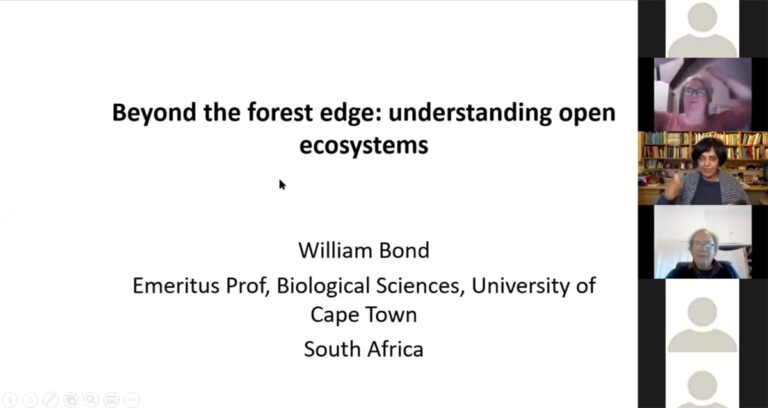
Professor William Bond: Beyond the Forest Edge: Understanding Open Ecosystems | Royal Society of South Africa (RSSAf) & Academy of Science of South Africa (ASSAf)
SHR@Home Webinar Series
Fires and Fynbos – Professor Tony Rebelo for the SHR@Home Webinar Series
Have we so lost touch with the natural order that we no longer appreciate our and other species’ need of wildfire? It seems so. The prevailing view that wildfire needs to be suppressed at all costs precludes a fundamental understanding of life on Earth.
Using humour, irony and a lifetime’s insight into the dynamics of our Fynbos Biome, SANBI’s Professor Tony Rebelo highlights how those who see “devastation” and “ruin” in regeneration and renewal have lost sight of that which sustains life and biodiversity on what would otherwise be a dead planet.
TV News
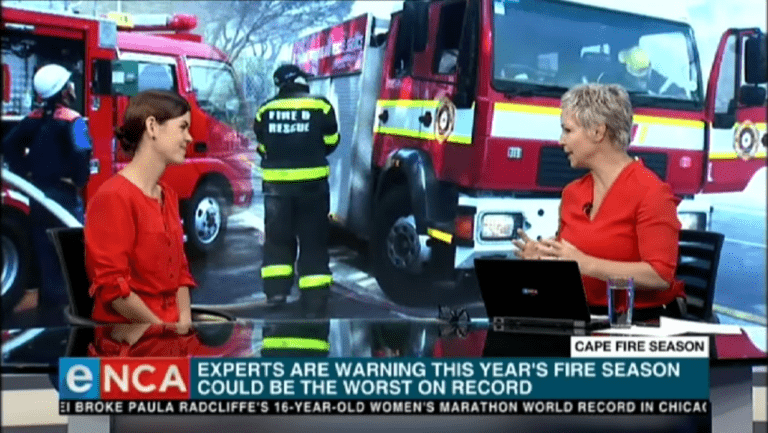
Above In conversation on the City of Cape Town’s Draft Climate Change Strategy with Salaamedia’s Inayet Wadee, Dr Alanna Rebelo points out that, beyond its professed inability to reach carbon neutrality by 2050, the City fails to address basic urban-planning and environmental concerns.
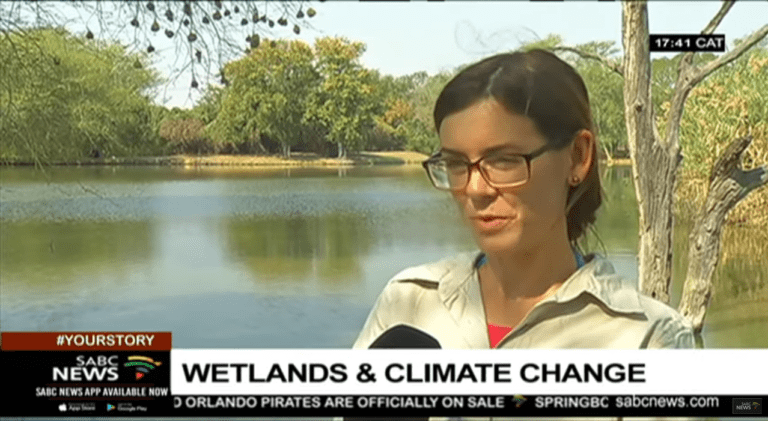
ACCESS Conversations on Climate Change – 2020
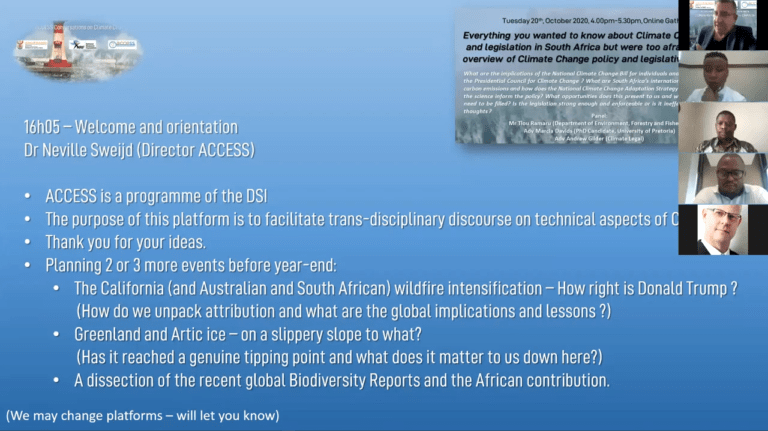
ACCESS Conversations on Climate Change – Episode 1: Climate Change Legal Landscape
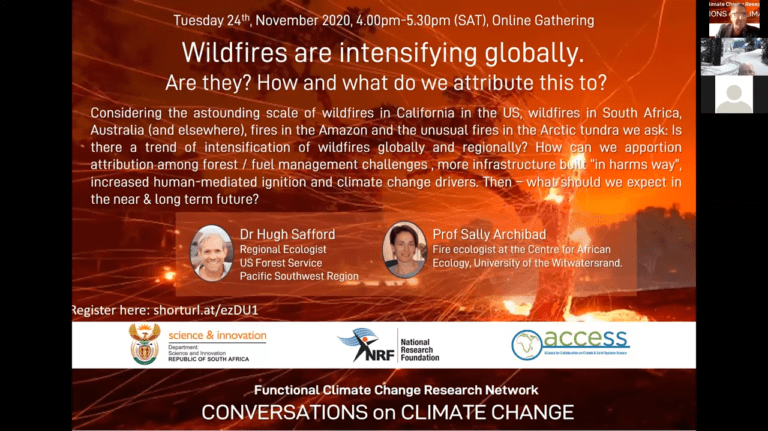
ACCESS Conversations on Climate Change – Episode 2: Fire
